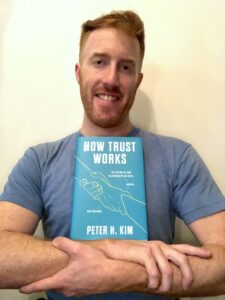 Trust is paramount for all successful and supportive human relationships. In love and in friendship, it is essential. In business, explicit contracts are often drafted so as to protect each party from violations of trust by the other despite the reality that the more trust there is without such binding contracts the better the relationship is for all parties. In politics, trust between the leaders and the people is necessary, and yet we seem to have less and less of it with each passing year. Our initial conclusion is obvious: the more trust we have with others, the better.
Trust is paramount for all successful and supportive human relationships. In love and in friendship, it is essential. In business, explicit contracts are often drafted so as to protect each party from violations of trust by the other despite the reality that the more trust there is without such binding contracts the better the relationship is for all parties. In politics, trust between the leaders and the people is necessary, and yet we seem to have less and less of it with each passing year. Our initial conclusion is obvious: the more trust we have with others, the better.
Through the research and writing of this book, our author shares that there are two main ways that we determine (and violate) trust in another: “competence, or the belief that someone possesses the technical and interpersonal skills that are required for a task,” and “integrity, or the belief that someone will adhere to a set of principles one finds acceptable.”
If a trust violation is one of competence, it can often be overcome, because while we need very little to establish that someone is competent, we are willing to “discount a single poor performance as a signal of incompetence, based on the assumption that even highly competent people can occasionally fall short of what they would normally be able to achieve.” If a trust violation is one of integrity, it is comparatively much harder to overcome because “we intuitively believe that those with high integrity would refrain from dishonest behavior in any situation, whereas those with low integrity will act either honestly or dishonestly depending on incentives.” Therefore, when we believe someone has acted dishonestly, we take it as “a reliable signal of low integrity, based on the assumption that only those with low integrity would ever act in dishonest ways.”
Let’s say we hire an accountant to do our taxes and they do a fine job three years in a row. Then, on the fourth year, we get a measly return, and after investigation determine that our accountant failed to understand a change in the tax code that should have benefitted us. This violation of trust can be easily forgiven by most people because the accountant has done good work in the past and simply made a mistake. We might not hire them next year, but we can forgive them for their lack of competence.
Alternatively, let’s say we discover that our spouse is cheating on us. This destroys our trust in the other, because we will now feel it necessary to re-examine many of their previous decisions and actions through a different lens. We may recalibrate our entire opinion of our spouse from a positive one to a negative one. We might choose to stay in the relationship, but this violation of trust is considerably harder to forgive.
With this in mind, when trust is broken, an important part of our response should include consideration of why the offense occurred. Is it a breach of competence or integrity? The answer can help guide us toward the path of reconciliation (or further separation).
The key to real trust is being willing to make ourselves vulnerable and is based on the belief that others won’t let us down, even though they could. We need to trust others and we need others to trust us because the more trust we have, the better our relationships will be. The relationships we share with others are one of the foundations of a good, happy, and prosperous life, which makes trust in others one of the highest virtues. We must always do our best to cultivate it responsibly.


Leave a Reply